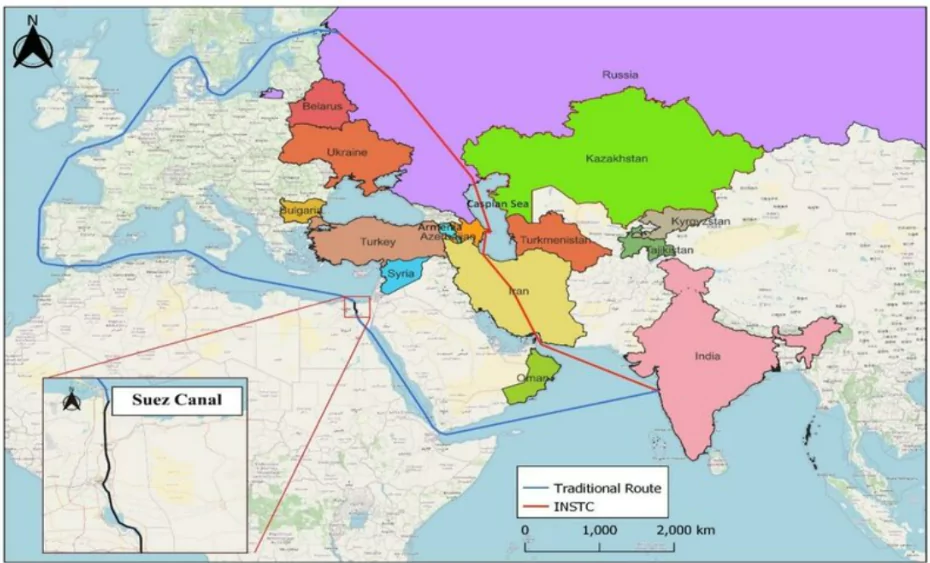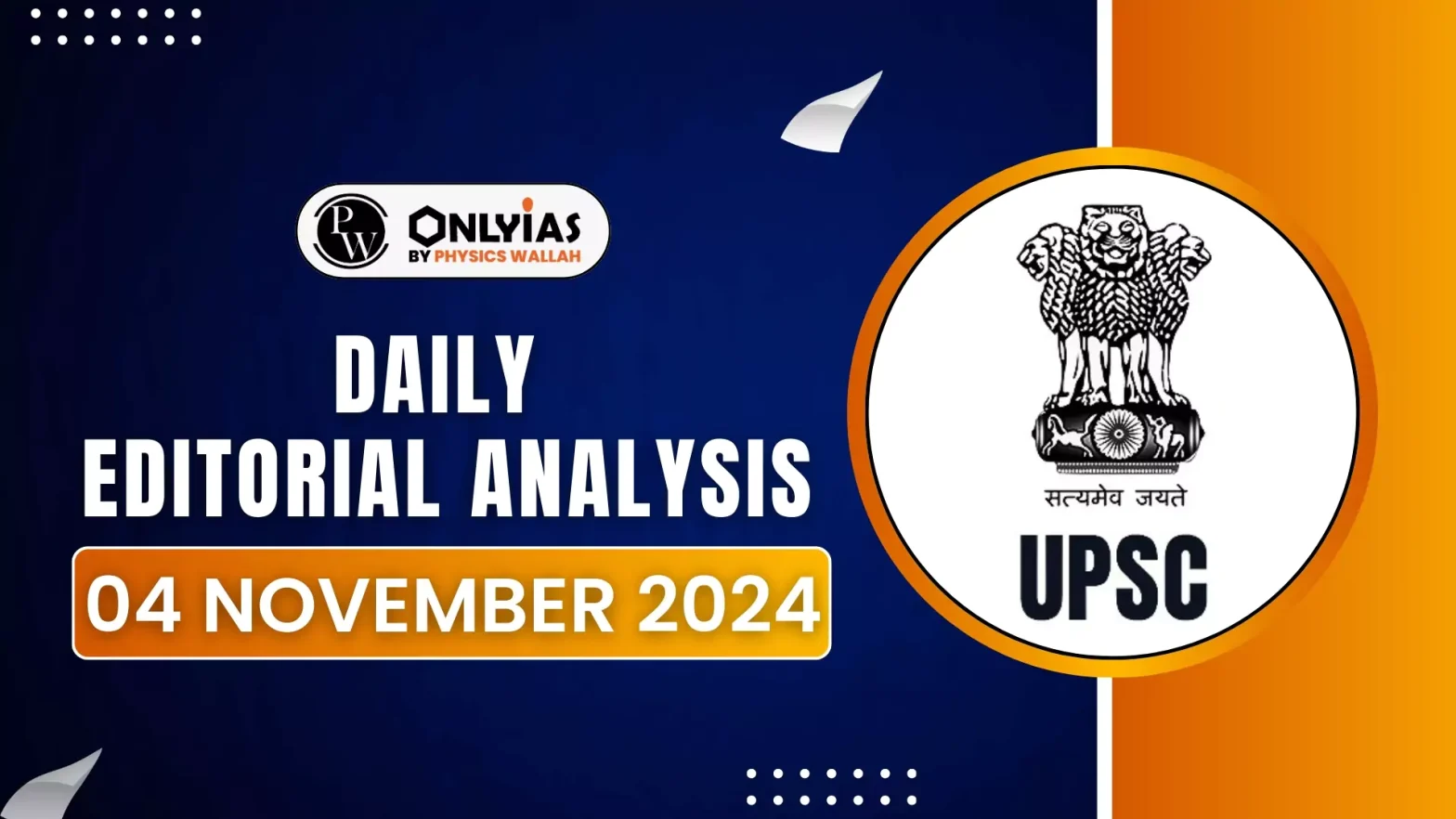The recent BRICS Summit in Kazan, Russia, offered India and Iran a strategic opportunity to revitalise their bilateral relations, which, despite long standing historical and cultural ties, have encountered stagnation in recent years.
BRICS summit
- As tensions increase due to the Gaza conflict, Iran seeks India’s help to de-escalate the situation, leveraging India’s good relations with both Israel and Iran.
- This bilateral meeting emphasised mutual recognition of each other’s roles in regional stability and the potential for a strengthened partnership across multiple domains.
- Iran also appreciated India’s growing role in the world and underlined the key role played by India in 2023 in Iran’s entry into key multilateral organisations such as the Shanghai Cooperation Organisation (SCO) and BRICS.
Enroll now for UPSC Online Course
Key Areas of Cooperation Between India and Iran & Implications for India
Regional Connectivity

- Chabahar Port and INSTC: Chabahar Port plays a central role in India-Iran relations. In May 2024, India and Iran signed a 10-year operational contract, reinforcing Chabahar’s importance in regional connectivity.
- Strategic Importance: Located outside the Strait of Hormuz, Chabahar provides stable access to India’s Kandla and Mumbai ports, mitigating trade risks due to potential conflicts in the Persian Gulf.
- Enhanced Connectivity: A 700-km railway link between Chabahar and Zahedan is being expedited, with a proposed road link from Zahedan to Zaranj in Afghanistan that would enable India to send humanitarian aid to Afghanistan, bypassing Pakistan.
- Utilizing Iran’s Strategic Coastline: Indian companies can benefit from shared logistics and port facilities along Iran’s coastline, boosting India’s trade footprint in the region.
Note: International North-South Transport Corridor (INSTC)
- INSTC is an important initiative taken by India, Russia and Iran by signing an Inter-Governmental Agreement on 12th September 2000, to enhance trade and transport connectivity among countries along its route.
- At present, there are 13 Members of INSTC, namely- India, Iran, Russia, Azerbaijan, Armenia, Kazakhstan, Kyrgyzstan, Tajikistan, Turkey, Ukraine, Belarus, Oman and Syria. Bulgaria has joined as an Observer State.
- It is a multimodal, cost and time effective route from India to Northern and Western Europe.
- It has the potential to enhance India’s connectivity with Central Asia and Eurasian Region and vice versa, taking into account the geo-strategic and economic importance of all the involved countries.
|
Energy Security
- Oil and Gas Imports: Iran is crucial for India’s energy security, with vast reserves of crude oil and natural gas. In May 2024, Iran’s crude production rose to 3.4 million barrels per day, with exports reaching 1.61 million bpd in March 2024.
- Iran-Oman-India Gas Pipeline: Initially proposed in 1993, the pipeline project has gained renewed interest. Iran and Oman are progressing with two undersea pipelines that could potentially extend to India if political and logistical hurdles are overcome.
- Resuming Oil Imports: Before 2019, Iran supplied about 12% of India’s oil needs. With a potential easing of sanctions, this partnership could help India meet its energy demands while offering Iran a vital market.
Defence Cooperation
- Military Collaboration: Iran has advanced its military capabilities, including ballistic and hypersonic missiles and armed drones. Iran is supplying drones to Russia for the Ukraine war. India, developing its drone program, could consider collaboration with Iran in this area.
- Counterterrorism and Intelligence Sharing: Both nations share an interest in combating terrorism, particularly from groups in Pakistan. Joint exercises and intelligence-sharing could strengthen regional security.
Check Out UPSC CSE Books From PW Store
Diplomatic Challenges
- Managing Controversial Statements:
- Remarks from Iranian leaders, such as the recent comparison of Indian Muslims to those in Gaza by Iran’s Supreme Leader, occasionally strain bilateral relations.
- Navigating these sensitivities will be essential for preserving their strategic relationship.
- Navigating Western Sanctions:
- Western sanctions on Iran remain a challenge, especially in defence cooperation and energy trade.
- However, India’s strategic autonomy, as shown in its approach to the Russia-Ukraine conflict, sets a precedent.
- India should follow a similar approach with Iran, prioritising national interests over external pressures.
Conclusion
India and Iran have the potential to deepen their strategic partnership, with India enhancing its engagement in West Asia and Iran consolidating its diplomatic advancements, especially in the wake of the recent BRICS Summit.
![]() 4 Nov 2024
4 Nov 2024

